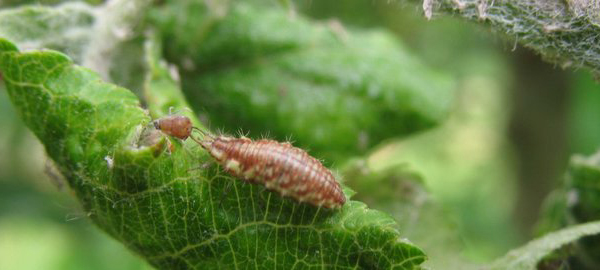API-tree

- Acronym: API-tree
- Countries involved: France, Denmark, Belgium, Sweden and Spain
- Budget: total budget of € 978,979 and has been granted € 812,627 through the C-IPM second call.
Pulling on all strings can help control pests in apple orchards
An apple a day keeps the doctor away – but how do you keep pests away from apples? Researchers are taking a holistic approach to controlling pests in a new European project spanning five different countries.
We humans are not the only ones who enjoy the juicy fruits of apple trees. Some insects are quite happy to munch on the succulent leaves of apple trees, which weakens the trees and harms the harvest. This is a huge problem for European apple growers that must rely rather heavily on pesticides to keep the harmful insects at bay. There are, however, other routes to follow than using insecticides for combating these pests.
A new European project involving scientists from eight different research institutions in France, Denmark, Belgium, Sweden and Spain will explore these possibilities. The three-year project, entitled API-tree, has a total budget of € 978,979 and has been granted € 812,627 through the C-IPM second call. The aim of the project is to design and assess the efficiency and sustainability of combinations of practice alternatives to chemicals for controlling pests in apples.
The consortium will design an agroecosystem that makes life uncomfortable for the pests. This will entail making it difficult for pests to be in the same space and time-frame as pest-susceptible tree organs and creating conditions that promote the pests’ natural enemies.
While the researchers will be taking a holistic approach to the whole orchard-pest complex they will have a focus on aphids in apple trees.
- We have chosen to focus on aphids because there are insufficient chemical controls due to restrictive legislation , says the coordinator of the project Dr. Aude Alaphilippe from Institut national de la recherche agronomique (INRA) in France.
The integrated approach of the project will take into account agroecosystem management, orchard design and practices, as well as economic restraints.
Apples are a popular fruit and their production accounts for about 35 percent of all orchards in Europe and covers an area of about 450,000 ha throughout the continent. The participating countries represent climatic and geographic conditions ranging from the balmy Mediterranean to the cool north. This will also enable knowledge exchange and proposals for innovative context-adapted solutions across a wide variety of growing conditions.
For more information, please contact:
Dr. Aude Alaphilippe
Institut national de la recherche agronomique, France
Email: aude.alaphilippe@inra.fr
Dr. Sylvaine Simon
Institut national de la recherche agronomique, France
Email: sylvaine.simon@inra.fr